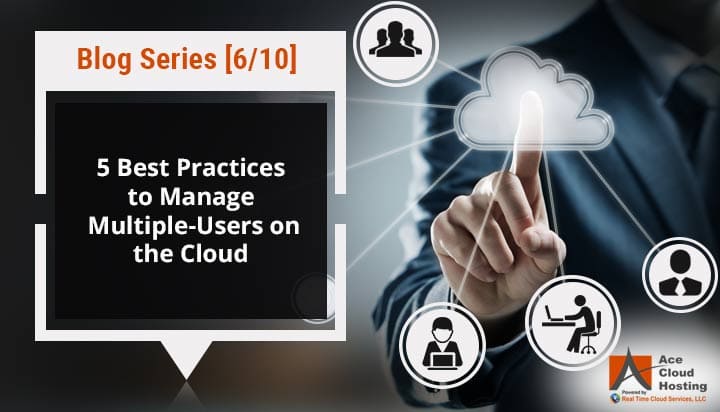5 Best Practices to Manage Multiple-Users on the Cloud
Halfway into the series, we have discussed the major issues that startups and SMBs have to face and how accounting on cloud resolves those challenges on many fronts. In the process, the last article of the series explained the practices that help the accounting professionals to manage data in the cloud.
Better management of data on the cloud simplifies the process of accessing and sharing the files between different users working together. Added the touch of fine user management, cloud accounting gets even more agile, secure, and productive.

For streamlined accounting, different parties (or users) have to work on the accounting data. Accountants, bookkeepers, business co-owners, etc. have to exchange the financial data repeatedly. With traditional methods, accounting information is exchanged over emails, which create multiple copies of the same data and even tracking the changes is a complicated process.
Cloud accounting provides the same platform for all the users to work together, which saves you from complexities, redundancy, and chaos. To make the most of the multi-user collaboration with accounting applications, here are best practices to follow:
1. Start with Teaching Basics of Cloud
Not that you will have to explain whole cloud paradigm to every user, but they must understand the basics. Since most of the users are well versed with other cloud applications, like – emails and social media, this task is not going to take much doing.
Moreover, hosted accounting and tax applications remain almost similar to the desktop version so the usability may not require any intense training for experienced professionals. Along with your business specifications, reminders about the common security practices can be included in the training process.
2. Clear Layout of the Roles and Their Permissions
Not each of the users has to have the control and access to the entire accounting system of yours. You can create or remove the users and define their permissions to view, edit, or share for every individual file on the cloud. Most of the hosting providers emphasize on keeping this permission control very simple but that process can vary.
To simplify this task as an admin, you should analyze the duties of the each defined and accordingly set their permissions. Since these permissions can be edited anytime, do not panic whenever there is a need for permission editing.
3. Get a Reliable Communication System
When a number of users are working together on the same accounting file, there must be some sort of interdependency between them. To serve that dependency, a quality communication setup will play a good role. Some of the cloud applications offer built-in features to chat or call. But that is not currently possible with every accounting applications.
So, you will have to opt for another communication solution. Usually, cloud-based VoIP solutions are picked as the favorite choice in these cases because of their cross-device compatibility. So, the accounting application as well communication application can run on the same device by the users.
4. Regular Check on User Activities
For businesses that are relying on the offshore services for accounting services, tracking the activities of different users is nearly a necessity. Admin rights indicate to your responsibility of administrating other users and almost all the required activity trackers are available by default that are updated in the real-time.
So you can check which user was active at what time and what the changes they made to the accounting files. Like other cloud utilities, tracking and monitoring can also be executed from any location, anytime.
5. Don’t Shy Away from Consulting Cloud Experts
There are some instances when you have to be hyperactive with creating or removing users, defining their permissions, and tracking their activities. Especially, CPA firms have to face such issue during the tax season. Amid heap of workload, managing the users might not be something you would enjoy as it may take some crucial time and divert your attention from the core business.
To simplify things, you can consult the cloud experts for support. While independent consultancy may incur heavy bills, your hosting provider’s support should do it without any additional charges.
Coming Up Next
With the next article of the series, we will analyze some CPA specific challenges, such as – managing a number of clients, mammoth data, etc. You can subscribe via email to receive updates on the upcoming article “How to Handle Multiple Clients and Data at Once in Your CPA Firm?“. You can also follow us on Twitter, Facebook, and LinkedIn to get the latest updates.







